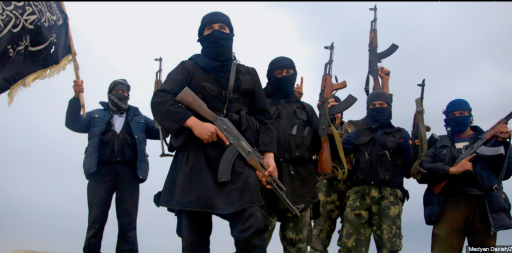Al Qaeda Shifts from Professionalism to Probability
James Dunnigan offers an assessment of changes in al Qaeda and their impact on the organization:
In late March, and early April, 2004, there were numerous arrests of Islamic terrorists in Britain, the Philippines, Central Asia (Uzbekistan), Iraq, Israel, Pakistan, Afghanistan, Spain and Italy that have revealed an interesting pattern. While most of these groups had someone who underwent training in al Qaeda’s Afghan camps, or training camps established elsewhere by other groups (Hizbollah, Hamas, Jemaah Islamiah,) few of these local terrorist cells were in touch with others. Al Qaeda was always a decentralized organization, but now, with most of it’s senior leadership dead or captured, and no nation willing to host the organization, the thousands of eager al Qaeda recruits are taking their orders from cryptic announcements on al Jazeera and local Islamic radical preachers. Investigators (of Islamic expatriate communities), and interrogators (of captured terrorists) have found that most terrorist activity is intense discussions of what is going to be done. Lots of talk, little action. The increasing number of self-made terrorists talk too much, train too little and plan operations poorly. But al Qaeda’s strategy takes this into account. No matter if hundreds of terrorist cells spend most of their time drinking coffee, it only takes a few to get their act together and pull off a massive attack. But the lack of large scale training facilities (like the Afghanistan camps) greatly reduces the number of attacks, and increases the number of al Qaeda supporters arrested.
***
The terrorist suspects rounded up were largely young, inexperienced and self-taught in the techniques of terrorism. There have been more bomb making accidents recently, with young bomb makers, using instructions obtained from the Internet, making mistakes and blowing themselves up. It’s a new generation of Islamic terrorists that comprise most of what is loosely called “al Qaeda.” There are fewer veterans of the 1980s Afghan war with Russia to provide guidance and supervision. The new generation is less professional, as well as younger. Those with experience have obtained it in more recent wars, such as the one in Algeria and Egypt during the 1990s (in both cases, Islamic radicals versus the government), wars that the Islamic radicals lost.
***
The “Afghani” (veterans of the 1980s Afghanistan fighting who joined al Qaeda) are disappearing at a rapid rate. These fellow are getting older, and keep getting caught. Many opt to quietly retire, while some go deeper into the criminal underground that is used to help finance and support terrorist operations. Al Qaeda’s training camps definitely raised the technical level of Islamic terrorists, and the overthrow of the Taliban in Afghanistan has knocked down the skill level of the terrorists out there.
***
Historically, the “next generation” of any violent movement takes a beating and most of its members, and nearly all of those in the next generation, look for a new cause. So by the end of the decade, Islamic militant terrorism will probably be seen as a dead end in the Islamic world. But in the meantime, if you have enough young wannbes out there trying to kill for the cause, some of them will get lucky.
This strikes me as quite plausible. Few organizations–violent or otherwise–maintain their momentum after the passing of the torch from the founding generation. There’s no reason to suspect al Qaeda will be one of the exceptions since it’s unlikely that their actions will bring them closer to their stated goals. Like it or not, modernization is coming, even to the Middle East and fundamentalist Islam will continue the decline it has experienced over the past several centuries.





